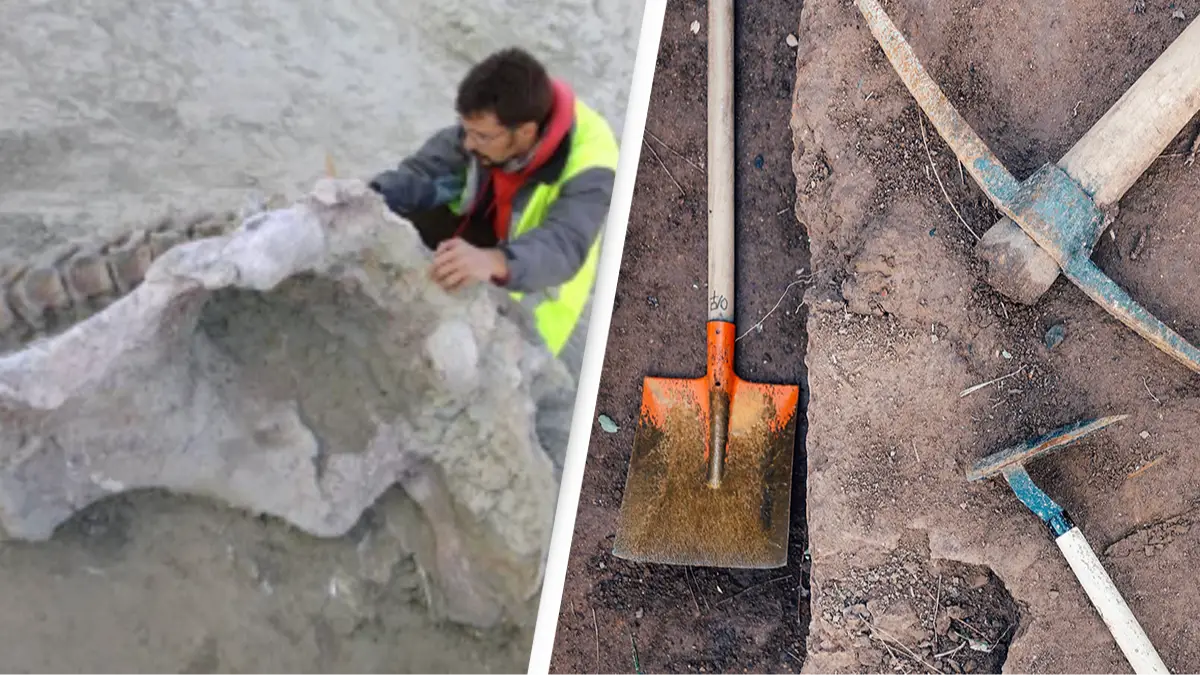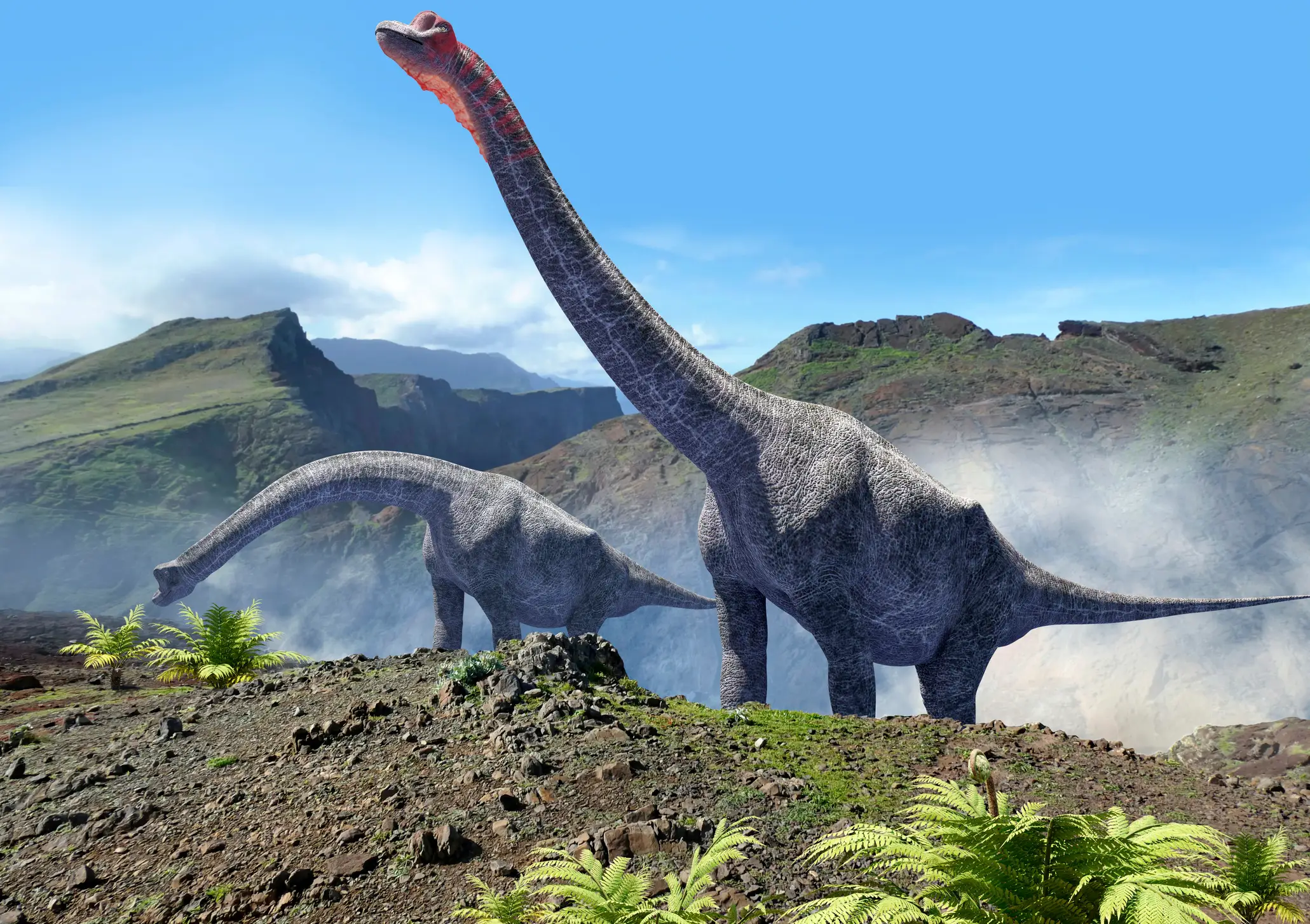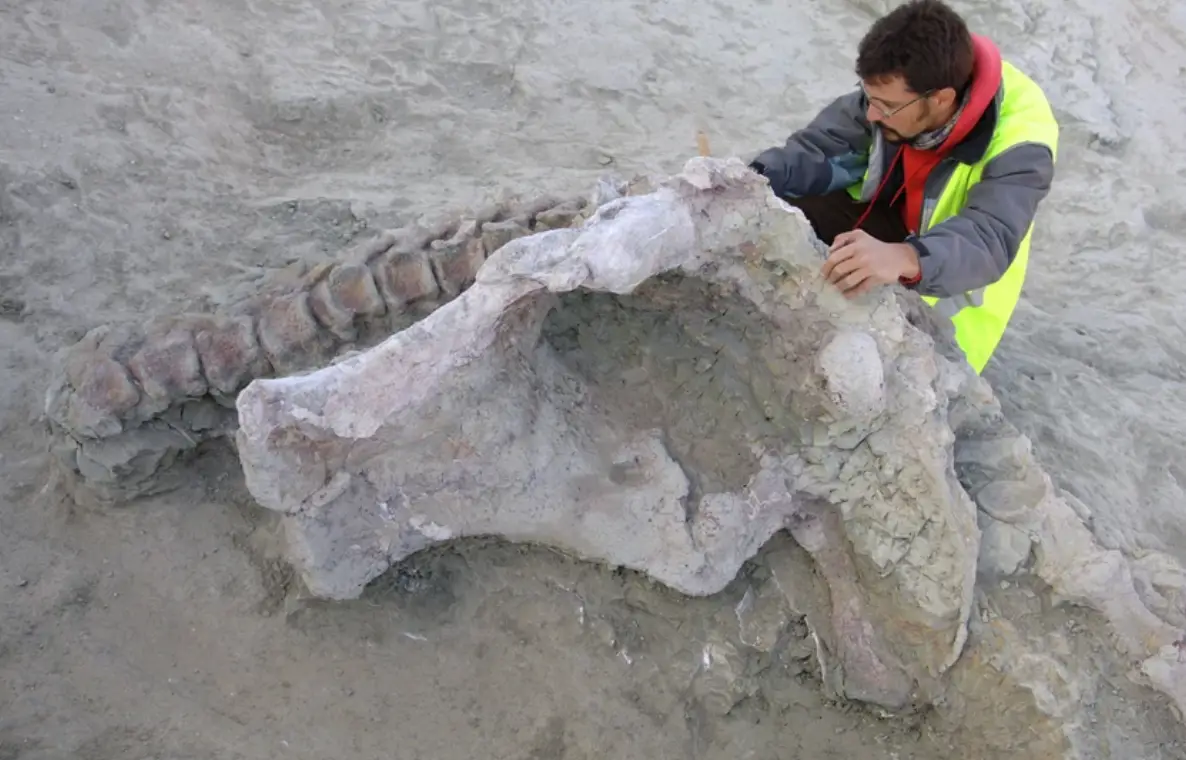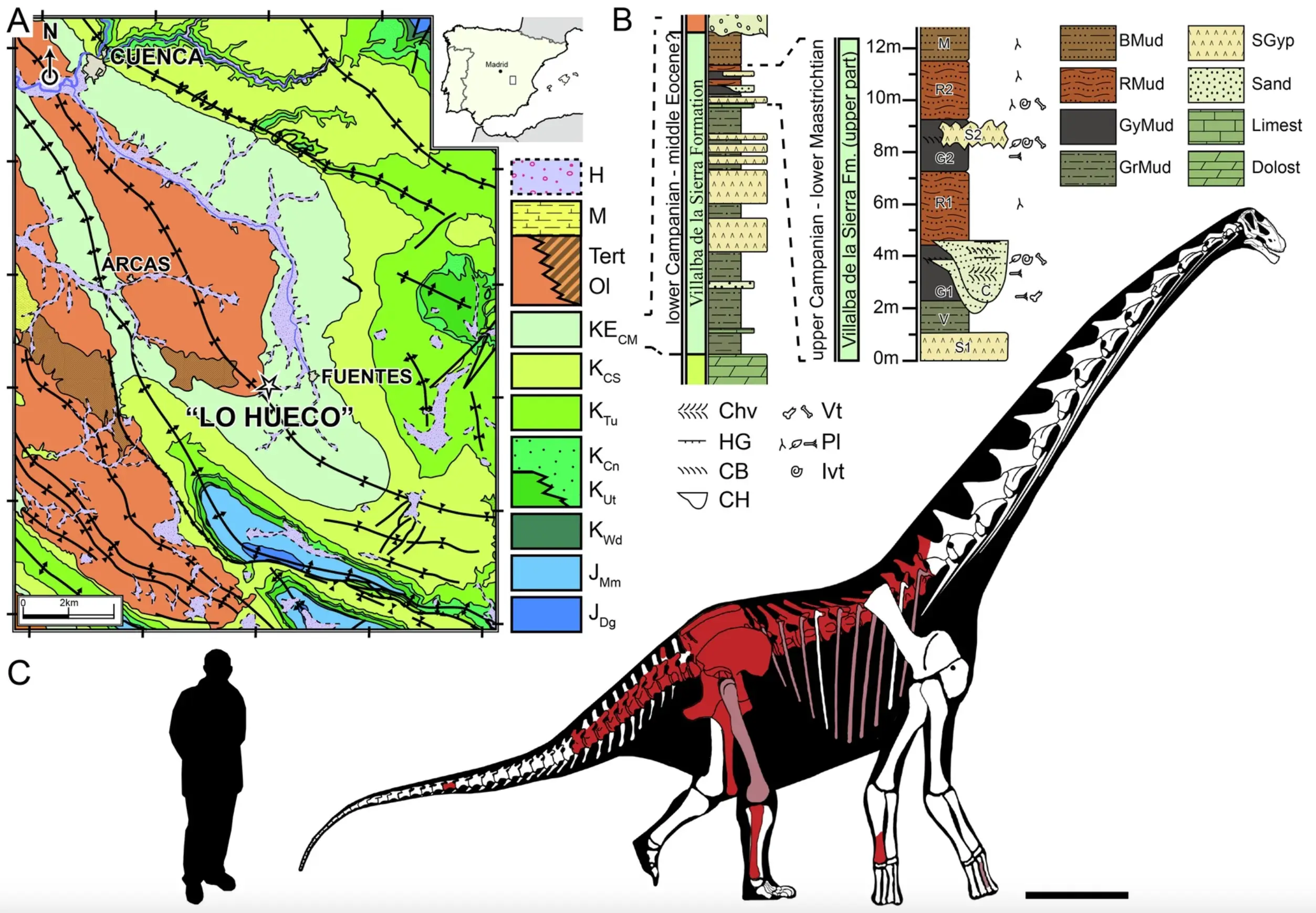
A new species of dinosaur has recently been discovered and it is an absolute monster.
It feels like we've just unlocked this beast but in reality it was roaming around 75 million years ago, according to palaeontologists.

It is a new species of sauropod, the dinosaur family that the Brontosaurus is part of - you know the giant herbivores with the long necks, tails and huge pillar-like legs.
Advert
It was discovered in Spain and so has been given the name Qunkasaura pintiquiniestra, it lived during the Cretacious period and is part of the titanosaur family - the largest dinosaurs to ever roam the Earth.
It was only unearthed as the Spanish government has planned to build a high-speed railway line between its capital city of Madrid, Spain, and the east coast city of Valencia.
Its fossil was unearthed at the Lo Hueco site near to Cuenca, a town in central Spain.

It isn't the only dinosaur that was uncovered on the site with several discovered - most of which came from the sauropod family.
In fact, the fossil site was discovered back in 2007 and since then there have been more than 12,000 that have been uncovered.
The study - published in the Communications Biology journal - explains how the discovery of the Qunkasaura is one of the most complete skeletons ever discovered in Europe, as such it offers a better understanding of the sauropods.
The specific dinosaur which was uncovered is likely to have died before reaching adulthood - because its vertebras are 'completely sutured', Pedro Mocho, a paleontologist at the University of Lisboa's faculty of sciences who led the discovery, told ABC News.
He said the finding has peaked the interest of palaeontologists across the globe because Europe was an 'insular environment' in the time that it was estimated to have roamed the planet.

That meant dinosaurs rarely grew so big under the conditions.
Mocho said: "A lot of dinosaurs are small because they have small areas to live in, so they have a small amount of resources.
"So, generally, the animals associated to insular environments are relatively small in some cases, and others, the opposite happens."
The expert believes there will be more dinosaur bones uncovered from the location.
Mocho added: "We don't know exactly how many bones we still have over there, but we still have some remains to collect."
I'm whole-heartedly ready for more dino news in my life.